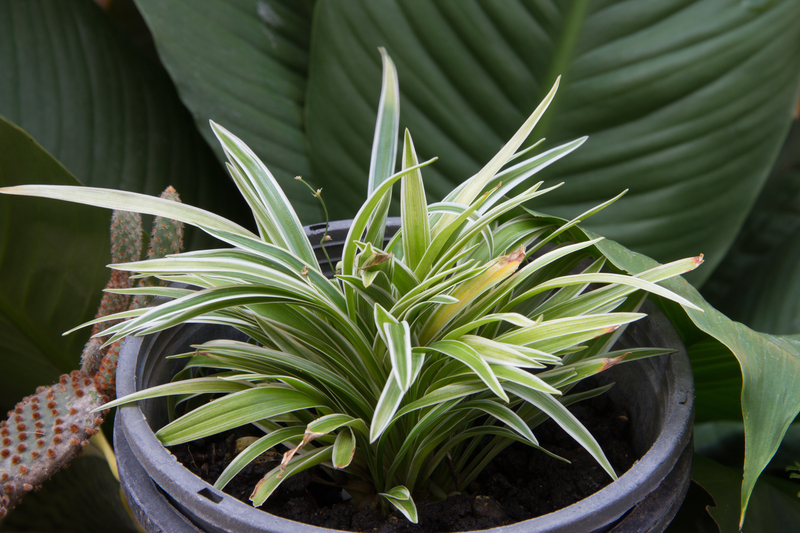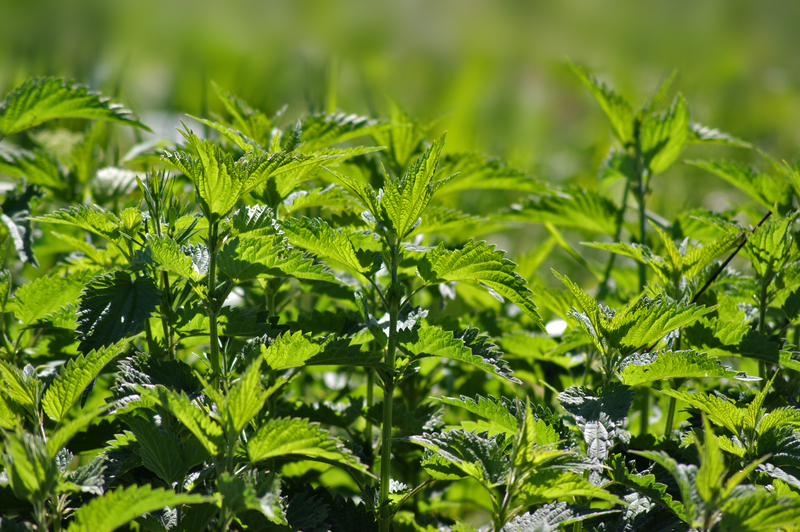The Ultimate Guide to Growing Your Own Herb Garden
Posted on 22/09/2025
The Ultimate Guide to Growing Your Own Herb Garden
Imagine stepping outside - or into your kitchen - to snip fresh basil, mint, or rosemary for your favorite dishes. Cultivating your own herb garden is not only satisfying but also brings fresh flavors, lush greenery, and delightful aromas right into your home!
Whether you're a novice gardener or a seasoned green thumb, this comprehensive guide will walk you through everything you need to know about growing your own herb garden. From choosing the right herbs and garden setup to care tips and harvesting solutions, you'll be fully equipped to start and maintain a thriving herb haven.
Why Grow Your Own Herb Garden?
Having a personal herb garden offers myriad benefits:
- Super Fresh Herbs: Enjoy the unmatched flavor and aroma of just-picked herbs in your meals.
- Cost-Effective: Growing herbs at home is far cheaper than buying them repeatedly from the store.
- Health Benefits: Many culinary herbs boast medicinal properties, antioxidants, and essential nutrients.
- Satisfaction and Mental Wellbeing: Gardening is proven to reduce stress, boost mood, and provide sense of accomplishment.
- Adds Beauty and Fragrance: Herb gardens are charming and can fill your space with fresh, invigorating scents.
Home Herb Gardening: Indoor vs. Outdoor
One of the first decisions is whether to create an indoor herb garden or an outdoor herb garden. Let's compare both:
- Indoor Herb Gardening: Perfect for apartment dwellers or anyone with limited outdoor space. Indoor herbs require good sunlight--at least 6 hours near a south-facing window--or supplemental grow lights.
- Outdoor Herb Gardening: Yields larger harvests and a wider range of herbs. Choose a sunny location with well-draining soil for best results. Outdoor beds, window boxes, or container gardens all work beautifully.
Tip: Many gardeners enjoy a blend: pots on the kitchen windowsill for quick access, and a fuller herb bed outdoors.

Choosing the Best Herbs for Your Garden
Not all herbs require the same care, so picking the right varieties is essential for success. Here are some top easy-to-grow herbs for beginners:
- Basil: A must for Italian dishes and pestos. Loves warm, sunny spots and regular pinching.
- Mint: Excellent for teas and garnishes. Very vigorous--best grown in pots to keep it controlled.
- Parsley: Flat-leaf (Italian) and curly types; both grow well from seed or transplants.
- Rosemary: Hardy and fragrant, rosemary is great for grilling and roasting. Needs good drainage and lots of sun.
- Chives: Mild onion flavor; perfect for salads and egg dishes.
- Cilantro (Coriander): Essential for salsas and curries, but bolts quickly in hot weather.
- Thyme: Low-maintenance; excellent in stews and Mediterranean dishes.
- Oregano: Staple in Greek and Italian cuisine. Thrives in hot, dry conditions.
- Dill: Light, feathery foliage for pickles and fish dishes.
- Sage: Earthy, robust flavor, ideal for autumn roasts and stuffing.
Other Herbs to Consider
If you want to expand your herb garden, consider lavender, tarragon, marjoram, lemongrass, or bay laurel as well!
Planning Your Herb Garden
Designing Your Space
Before planting, sketch your space to determine:
- How much sunlight does the area get?
- Is there easy access to water?
- How much space is available (for pots, beds, or shelves)?
- Do you want to grow herbs indoors, outdoors, or both?
Popular Herb Garden Layout Ideas:
- Container gardens (pots, troughs, or recycled items)
- Window boxes or railing planters
- Raised beds or in-ground plots
- Tiered shelving for small spaces or indoor gardening
- Spiral or keyhole herb beds for visual interest
Pro Tip: Group herbs with similar water and light needs together for easier care and lush growth.
Planting Your Herb Garden
Starting From Seed vs. Buying Seedlings
Starting herbs from seed offers more variety and is affordable, but takes longer and requires patience. Buying young plants or seedlings gives you a head-start and is convenient for beginners.
- Certain herbs like basil, dill, cilantro, and parsley are quick to sprout and easy from seed.
- Slower-growing perennial herbs (rosemary, sage, thyme, oregano) often do better as seedlings or small plants.
Soil, Light, and Water Requirements
Most culinary herbs thrive with these general conditions:
- Light: 6+ hours of direct sunlight daily (supplement with grow lights for indoor herb gardening).
- Soil: Well-draining, loamy soil enriched with compost is ideal. For containers, use a quality potting mix formulated for herbs or vegetables.
- Water: Herbs prefer moderately moist (not soggy) conditions. Water deeply but allow soil to dry slightly between watering. Overwatering can lead to root rot!
- Spacing: Give each plant enough room to expand. Check recommendations on your seed packets or plant labels for ideal spacing.
Planting Steps
- Loosen and prepare the soil or fill containers with potting mix.
- Plant seeds at a shallow depth (usually 1/4 inch), or transplant seedlings with care.
- Water gently and label your herbs.
- Place containers in sunny spots, or situate garden beds thoughtfully at your chosen site.
- Monitor, water when needed, and watch for signs of growth.
Herb Garden Maintenance and Care
Feeding and Fertilizing
Most herbs are light feeders and thrive with minimal fertilization. A monthly application of organic liquid fertilizer or compost tea can encourage lush, flavorful growth. Avoid over-fertilizing, as this can reduce the flavor concentration in your herbs.
Watering Tips
- Check the soil moisture regularly; herbs prefer a "moist but not wet" root environment.
- Use self-watering pots or add mulch to help maintain even moisture for outdoor beds.
- Water in the early morning to minimize evaporation and disease risk.
Pruning and Harvesting
- Regular pinching and harvesting encourage bushy, robust plants.
- Start cutting herbs as soon as they have enough growth (usually 4-6 inches tall).
- Always use clean, sharp scissors or pruners to avoid damaging the plant.
- Avoid stripping more than one-third of the plant at a time.
Dealing with Pests and Diseases
Herbs are relatively pest-resistant, but watch out for:
- Aphids, spider mites, whiteflies, and caterpillars
- Fungal issues, such as powdery mildew or root rot (usually from overwatering or poor air flow)
Natural pest control: Spray with diluted soap solution or neem oil, encourage beneficial insects (ladybugs!), and ensure good air circulation between plants.
Harvesting and Preserving Your Herbs
Harvesting is one of the joys of maintaining your home herb garden. Here's how to make the most of your bounty:
- Harvest leafy herbs (like basil, mint, oregano) in the morning after dew has dried but before the heat of the day.
- For woody herbs (rosemary, thyme, sage), snip sprigs as needed.
- Dry or freeze surplus herbs for use throughout the year.
Best Methods to Preserve Herbs
- Drying: Gather bunches and hang upside down in a cool, airy place until crispy, then store in airtight containers.
- Freezing: Chop and freeze herbs in ice cube trays with water or olive oil for easy recipe additions.
- Infusions: Infuse herbs in vinegar or oil for use in dressings and marinades.

Frequently Asked Questions About Growing an Herb Garden
What herbs grow well together?
Group Mediterranean herbs (rosemary, oregano, sage, thyme) together as they prefer dry, sunny conditions. Basil, cilantro, and parsley prefer more moisture and richer soil. Keep hardy, perennial herbs apart from vigorous spreaders like mint.
How much sunlight do herbs need?
Most herbs need at least 6 hours of sunlight daily. If growing indoors, supplement natural light with LED or fluorescent grow lights to maintain healthy, bushy growth.
Can I grow herbs year-round indoors?
Absolutely! With a sunny window or grow lights, you can maintain a productive indoor herb garden all year. Maintain temperature between 60-75?F and watch for dry indoor air in winter.
How often should I water my herb garden?
Check soil moisture with your finger. Water when the top inch feels dry. Remember, containers often dry out faster than garden beds.
What are the easiest herbs to grow for beginners?
Basil, mint, parsley, chives, and oregano are among the easiest and most forgiving choices for gardeners just starting an herb garden.
Conclusion: Enjoy the Rewards of Your Herb Garden
Growing your own herb garden is a rewarding, cost-effective, and enriching hobby that anyone can enjoy. With the insights from this ultimate guide, you're ready to select the right herbs, plan your space, and care for your leafy companions through every season.
Don't wait - start your herb garden today, and relish the fresh flavors, vibrant scents, and beauty it brings to your kitchen and life.
Happy gardening!
Latest Posts
Begin Your Green Journey: 9 Essential Gardening Tips for Beginners
Designing an Engaging Space for Little Explorers
The Ultimate Guide to Growing Your Own Herb Garden

